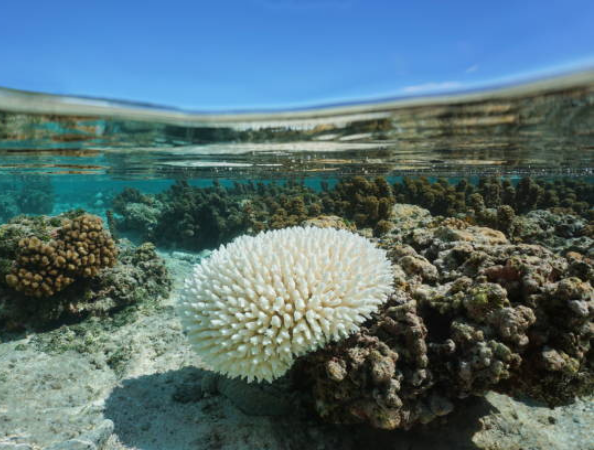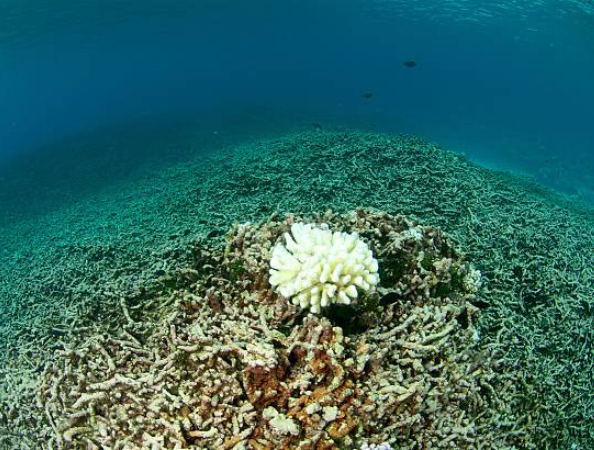What is coral bleaching and why is it so serious?

Between 2023 and 2025 , the world's oceans experienced the most extensive coral bleaching event ever recorded, with nearly 84% of reefs affected in more than 80 countries.
Rising sea temperatures have generated an environmental crisis that has severely impacted several regions, including Brazil, where six of the seven monitored areas have entered a state of alert. In places like Fernando de Noronha and the coast of Pernambuco, the impact has reached critical levels, with more than 90% of corals damaged.
Bleaching occurs when corals lose the microscopic algae that live inside them . These algae are essential for their survival, providing them with nutrients and color. Without them, corals not only bleach but also experience a reduced ability to generate energy, which can lead to their death.
Most alarming is that this process can begin with a sustained increase of just 1°C in water temperature for just a few weeks.

Coral bleaching occurs when corals lose the algae that give them energy and color. Photo: iStock
The loss of reefs doesn't just mean a change in the marine landscape. Coral reefs are home to nearly a quarter of all marine life , serving as refuge and food sources for multiple species.
In addition, they play a vital role as natural storm barriers, contribute to food security by supporting local fisheries, and drive economic activities related to tourism.

They act as natural storm barriers and protect coastal communities. Photo: iStock
When these structures degrade, the impact extends beyond the marine ecosystem. Coastal communities that depend on reefs see their livelihoods compromised, and the economies of numerous regions suffer. The disappearance of these ecosystems, therefore, generates a ripple effect that transcends the environment and directly affects people.
Experts point out that bleaching is closely linked to global warming and warn that the only way to mitigate the crisis is to drastically reduce greenhouse gas emissions.
At the same time, they recommend strengthening the protection of surviving reefs and controlling pollution in coastal areas. Without concrete progress on these fronts, "the future of coral reefs will remain at risk on a global scale."
More news in EL TIEMPO *This content was rewritten with the assistance of artificial intelligence, based on information from O Globo, and reviewed by a journalist and an editor.
eltiempo





